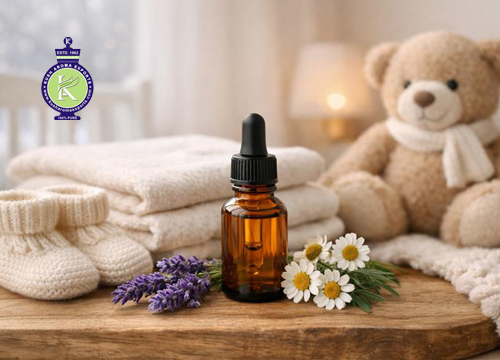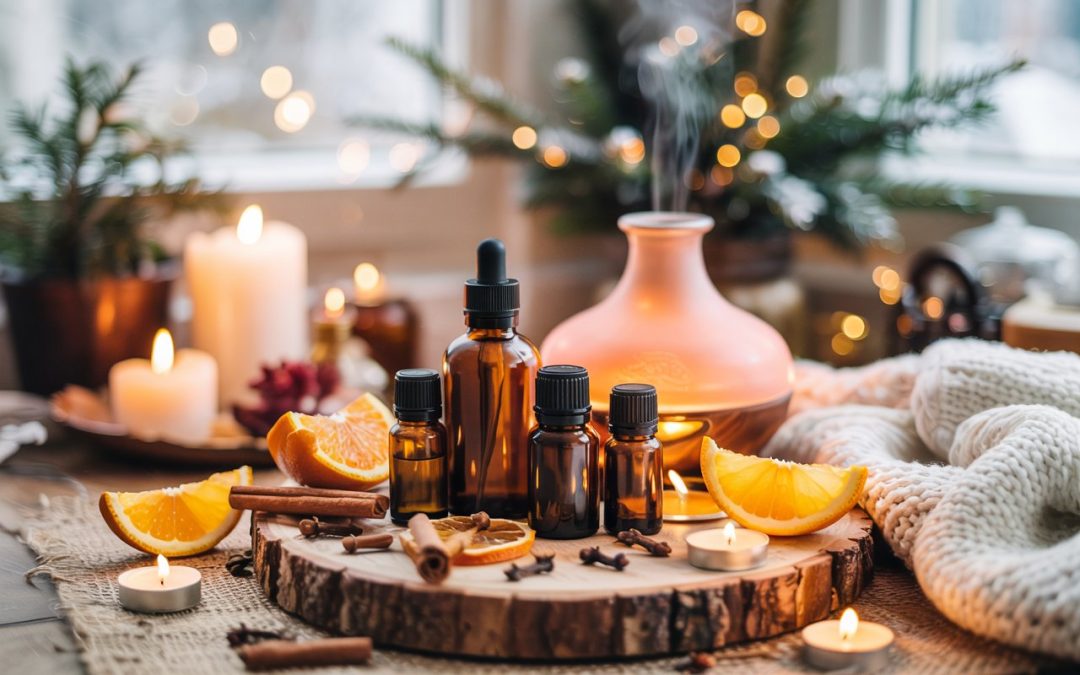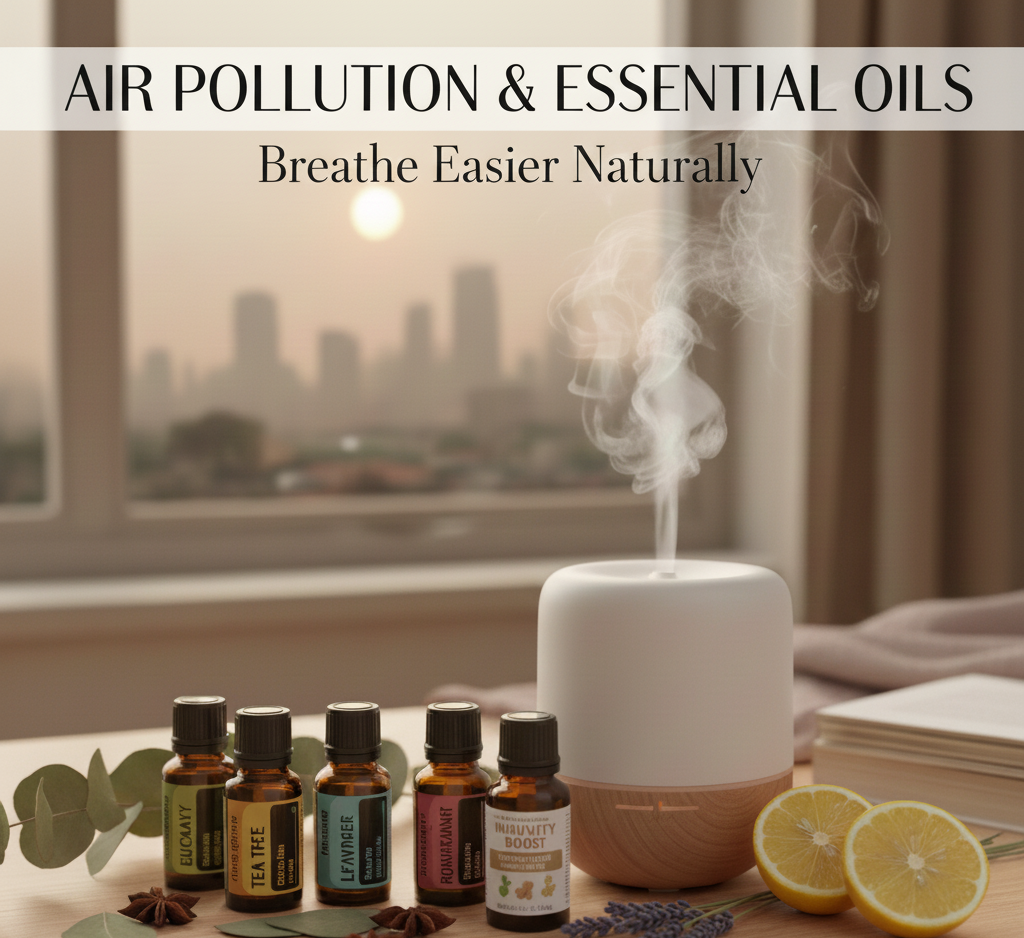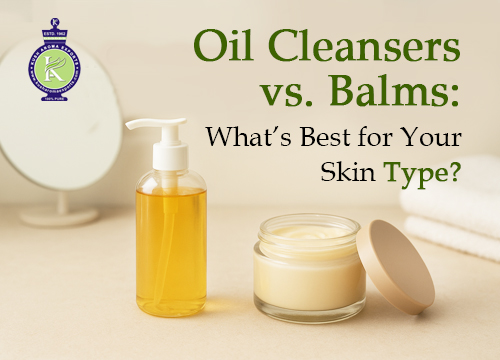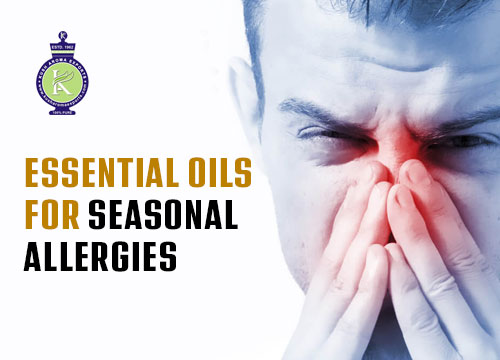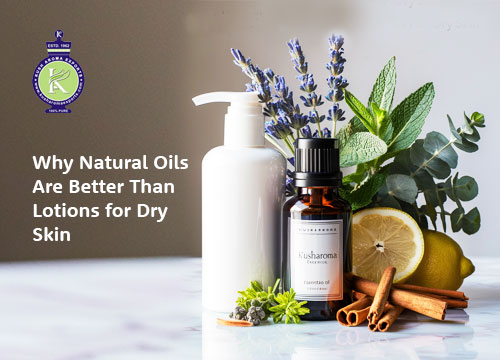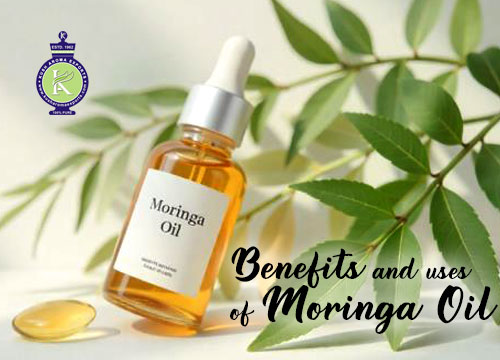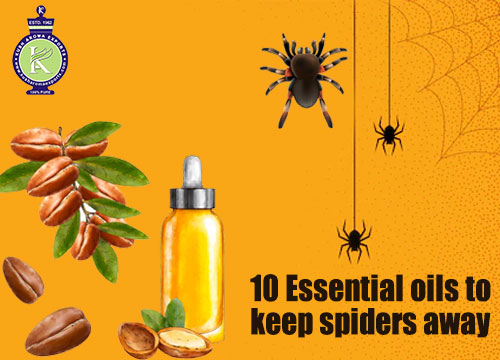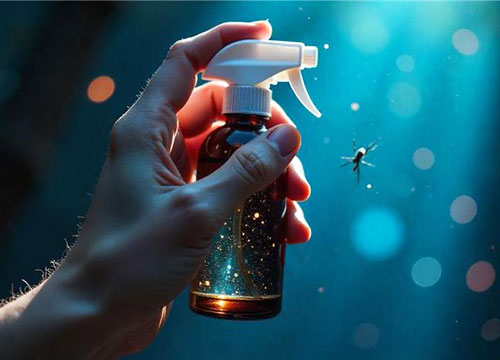Winter brings cozy evenings, festive moods, and, unfortunately, frequent colds and seasonal illnesses, especially for children. Kids’ immune systems are still developing, making them more vulnerable to infections during the colder months. Many parents today are looking for gentle, natural ways to protect their children’s health. This is where essential oils and natural remedies can play a supportive role.
When used correctly and safely, essential oils can help boost immunity with essential oils while creating a calming, nurturing environment for kids. In this blog, we’ll explore how essential oils can act as an immunity booster for winter, which oils are safe for children, and how to use them effectively.
Why Immunity Needs Extra Support in Winter for Kids
During winter, children spend more time indoors, are exposed to seasonal viruses, and often experience reduced sunlight and physical activity. These factors can weaken immune responses. Additionally, cold weather can dry out nasal passages, making it easier for germs to enter the body.
Supporting immunity during winter doesn’t mean preventing every cold—it means strengthening the body’s natural defense system so children can recover faster and stay resilient.
Can Essential Oils Really Help Boost Immunity?
Essential oils are concentrated plant extracts known for their antibacterial, antiviral, and immune-supportive properties. While they are not a replacement for medical care, they can be a gentle addition to a holistic wellness routine.
When used appropriately, essential oils can:
- Support respiratory health
- Help fight seasonal germs
- Promote better sleep and relaxation
- Reduce stress, which plays a key role in immunity
Using essential oils to boost immunity with essential oils works best when combined with good nutrition, adequate sleep, hydration, and hygiene.
Safety First: Using Essential Oils for Kids
Before introducing essential oils to children, safety is essential.
Important Guidelines
- Always dilute essential oils with a carrier oil before applying to skin
- Avoid using strong or hot oils on young children
- Do not apply oils on hands, face, or near eyes
- Use age-appropriate oils only
- Patch test before topical use
For children under 2 years, consult a healthcare professional before use.
Best Essential Oils for Kids’ Immunity in Winter
Here are some gentle and commonly used essential oils that can support immunity in children when used correctly.
1. Lavender Essential Oil
Lavender oil is one of the safest and most versatile oils for kids.
Benefits
- Promotes restful sleep
- Reduces stress and anxiety
- Supports immune health indirectly
Good sleep helps the body repair and strengthen immune function, making lavender a helpful immunity booster for winter.
2. Tea Tree Essential Oil
Tea tree oil is known for its antimicrobial properties.
Benefits
- Helps fight airborne germs
- Supports clean breathing
- Useful for seasonal wellness
This oil should always be diluted and used cautiously around kids.
3. Eucalyptus Essential Oil (Radiata variety)
Eucalyptus radiata is milder than other eucalyptus types and more suitable for children.
Benefits
- Supports respiratory health
- Helps clear congestion
- Promotes easier breathing in winter
Diffusing eucalyptus can help maintain a healthier indoor environment.
4. Lemon Essential Oil
Lemon oil is uplifting and cleansing.
Benefits
- Supports immune response
- Helps purify air
- Encourages a positive mood
A cheerful mood and reduced stress can help boost immunity with essential oils naturally.
5. Frankincense Essential Oil
Frankincense is gentle and grounding.
Benefits
- Supports immune system function
- Encourages deep breathing
- Promotes overall wellness
It is suitable for topical use when properly diluted.
How to Use Essential Oils Safely for Kids in Winter
Diffusion for Daily Immune Support
Diffusing essential oils is one of the safest methods for children.
How to Use
- Add 3–5 drops of essential oil to a diffuser
- Diffuse for 30–45 minutes
- Use during study time or before bedtime
This method helps create a protective, calming environment and works well as an immunity booster for winter.
Gentle Topical Application
Topical use can support immunity when oils are well diluted.
Dilution Guide
- 1 drop essential oil per 1 tablespoon carrier oil
Apply to:
- Bottom of feet
- Back or chest (avoid face)
This method allows oils to be absorbed gently.
Aromatherapy Roll-Ons for Kids
Creating pre-diluted roll-ons makes essential oil use easy and safe.
Use
- Apply before school or bedtime
- Helps support immune health and emotional balance
Simple DIY Immunity Blends for Kids
Winter Immunity Diffuser Blend
- 2 drops Lavender
- 2 drops Lemon
- 1 drop Eucalyptus Radiata
This blend supports respiratory health and helps boost immunity with essential oils naturally.
Bedtime Wellness Blend
- 3 drops Lavender
- 1 drop Frankincense
Encourages restful sleep, which is vital for immune strength.
Supporting Immunity Beyond Essential Oils
While essential oils are helpful, they work best as part of a complete wellness routine.
Additional Natural Immunity Boosters for Winter
- Warm, nourishing meals
- Adequate hydration
- Regular sleep routines
- Outdoor play and sunlight exposure
- Herbal teas suitable for children
Combining these habits with essential oils creates a balanced approach to immunity support.
Common Mistakes to Avoid
- Using undiluted oils on children’s skin
- Overusing diffusers for long hours
- Using adult-strength blends
- Applying oils near eyes, nose, or mouth
Being mindful ensures essential oils remain a gentle and effective immunity booster for winter.
Final Thoughts
Supporting children’s immunity during winter doesn’t have to be complicated. With mindful use, essential oils can offer gentle, natural support that complements a healthy lifestyle. By focusing on safe oils, proper dilution, and consistent routines, parents can boost immunity with essential oils while nurturing their child’s overall well-being.
Essential oils are not a cure, but when used responsibly, they can be a comforting and effective addition to winter wellness, helping kids stay healthier, calmer, and more resilient throughout the season.

